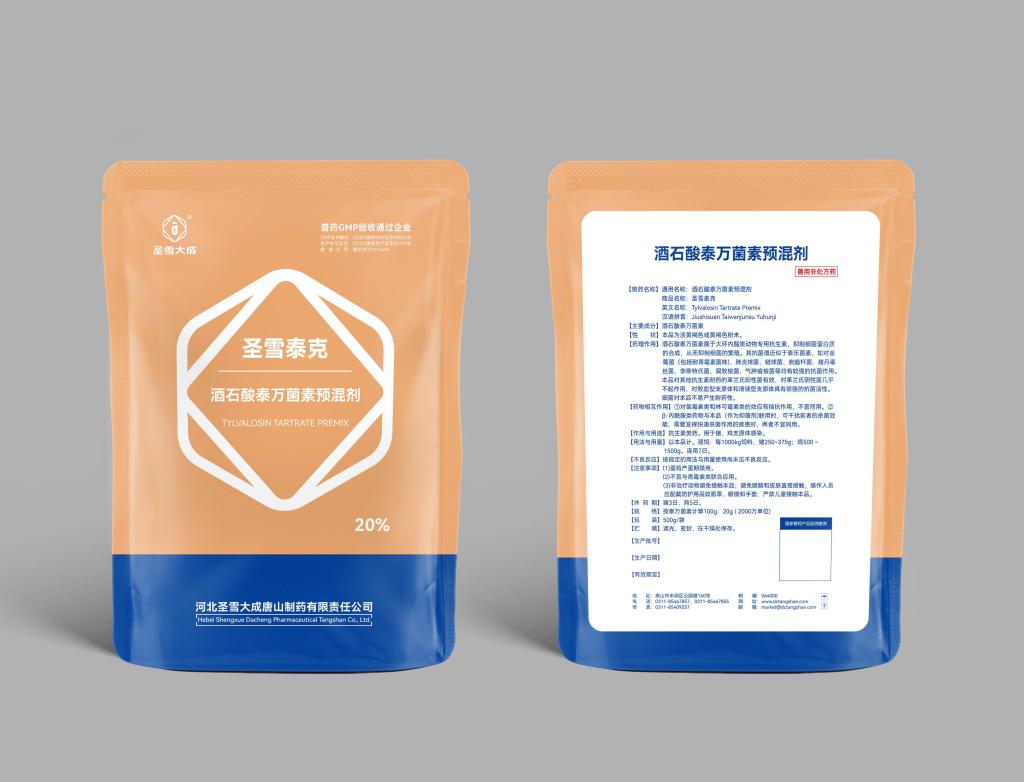
 CONTACT
CONTACT
- Linkman:Linda Yao
- Tel: +8618231198596
- Email:linda.yao@dcpharma.cn
- Linkman:CHARLES.WANG
- Department:Overseas
- Tel: 0086 0311-85537378 0086 0311-85539701
Tylvalosin tartrate premix contributes to the sustainability of livestock production systems.
TIME:2024-08-20
In the realm of sustainable agriculture, the use of effective and responsible veterinary medications plays a crucial role. Tylosin tartrate premix is one such medication that has been widely used in livestock production for its ability to promote animal health while minimizing environmental impact. This article explores how tylosin tartrate premix contributes to the sustainability of agricultural systems by enhancing animal welfare, improving feed efficiency, and reducing antibiotic resistance.
Animal Health and Welfare
Tylosin tartrate is an antibiotic that belongs to the macrolide class. It is commonly used in the prevention and treatment of bacterial infections in animals, particularly in swine and poultry. By controlling these infections, tylosin tartrate helps maintain the overall health of livestock, which in turn reduces the need for more aggressive treatments and the associated stress on the animals. Healthy animals also tend to have better growth rates and produce higher-quality meat, eggs, and milk, contributing to a more sustainable food supply chain.
Improving Feed Efficiency
One of the significant benefits of using tylosin tartrate premix in livestock diets is improved feed conversion ratios. This means that less feed is required to achieve the same weight gain or production levels, leading to reduced costs and environmental impacts. For example, in swine production, studies have shown that tylosin can improve feed efficiency by up to 5%, resulting in less waste and lower carbon footprints associated with feed production and transportation.
Reducing Antibiotic Resistance
The responsible use of antibiotics like tylosin tartrate is essential for mitigating the development of antibiotic-resistant bacteria. When used correctly as part of a comprehensive animal health management program, tylosin tartrate can help prevent the spread of infections without promoting resistance. This approach aligns with the principles of sustainable agriculture, which emphasize the prudent use of resources and minimizing negative environmental impacts.
Environmental Impact
Tylosin tartrate premix also contributes to sustainability by reducing the environmental footprint of livestock production. By improving feed efficiency, it helps reduce the amount of manure produced per unit of product, which in turn decreases the potential for water pollution and greenhouse gas emissions from manure storage facilities. Additionally, the improved health of animals leads to fewer veterinary interventions, further reducing the environmental impact associated with medication use.
Conclusion
Tylosin tartrate premix is a valuable tool in sustainable agriculture. Its ability to support animal health, enhance feed efficiency, and mitigate the development of antibiotic resistance makes it a key component in maintaining the long-term viability of livestock production systems. As the global demand for animal products continues to rise, the responsible use of medications like tylosin tartrate will be increasingly important for ensuring a sustainable and resilient food supply.
- Tel:+8618231198596
- Whatsapp:18231198596
- Chat With Skype







